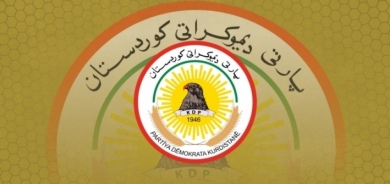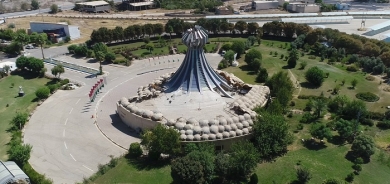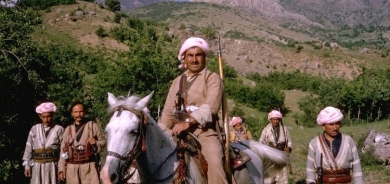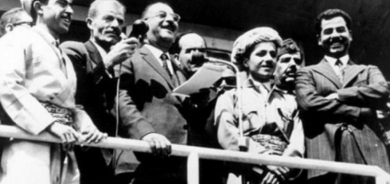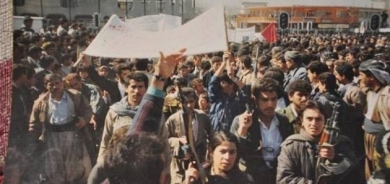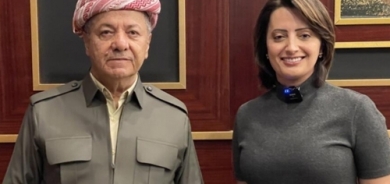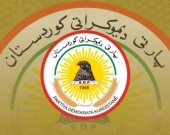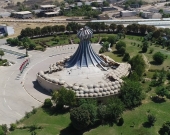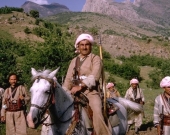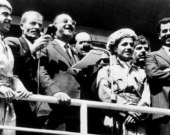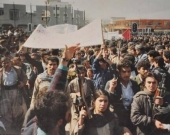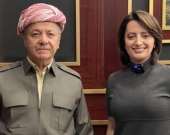The Munich Security Conference: The Same Again?
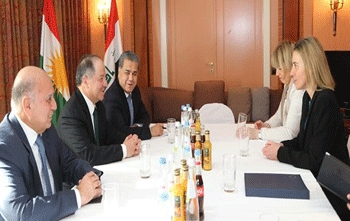
(Gulan-Media) -- Masoud Barzani, President of the Kurdistan Region, is in Germany to participate in this year’s Munich Security Conference. He did so last year as well, so how much will his message have changed in the meantime?
In February last year, President Masoud Barzani flew to the Munich Security Conference to discuss the ongoing threats facing Kurdistan with panels of other world leaders. There, he talked about the need to cooperate in the fight against IS, the growing humanitarian crisis, and the need for additional resources to deal with both. He left the conference with promises of support and with an increased recognition of Kurdistan’s vital position in the wider region.
Kurdistan still faces problems from IS, still has to deal with a massive humanitarian crisis, and still needs support if it is to be able to solve these problems. It is to be hoped that he will leave the conference with increased support and recognition, as he did last year, but for the problems to really be solved, Kurdistan needs much greater levels of both than it received in the wake of the last Munich conference.
How have we ended up in the situation where we are having essentially the same conference all over again? Part of the answer to that is the ongoing nature of the problems involved. IS, the wider Syrian conflict, and the flight of hundreds of thousands of internally displaced people are inextricably bound up with one another, so that it is impossible to solve any of these problems piecemeal. The complexity of the situation means that it could take years to resolve. Indeed, the ripples from the conflict could continue to spread out for a generation. It would be unrealistic to expect that a single conference would solve things.
Yet we can also say that more could have been done in the wake of the last Munich conference. There were promises of support for Kurdistan, but these did not always translate into reality. There were vague noises about military assistance, but only some of Kurdistan’s partners have provided this, and it has tended to take the form of limited training, rather than the large scale supplies of weaponry, funds and direct support that Kurdistan might need to genuinely defeat IS incursions. There has been some humanitarian assistance, but there has been a tendency for Europe to focus on its own borders and its “migrant crisis” in the last year. The result appears to have been an effort that only went partway in supporting Kurdistan’s efforts, with the result that a year on we find ourselves looking at essentially the same conference, with the same problems.
Has anything changed? Certainly, the tone of the Syrian conflict has, with the inclusion of Russia in it. That is likely to have knock on effects on IS elsewhere, and to change the focus of the security situation in the region. What it means for Kurdistan is as yet unclear, and it may well be that President Barzani will seek dialogue on the extent of Russian involvement during the conference.
Can we establish what his message at the conference is likely to be? The similarities of the situation to the last conference make some aspects of it relatively easy to predict. President Barzani will almost certainly stress the need for greater military, political, financial and humanitarian support for Kurdistan. He will stress the severity of the situation that Kurdistan faces, and ask that other countries do their part in resolving a crisis with substantial international implications.
Yet this is not likely to be a case of Kurdistan simply begging for help. While Kurdistan undoubtedly needs assistance at this point, President Barzani is likely to emphasise the point that providing that assistance is good for both the wider region and for Europe in the long term. With the fight against IS, he is likely to point out that the peshmerga represent the best alternative to European or US troops becoming involved on the ground. With the humanitarian crisis, he is likely to press the point that taking in refugees in Kurdistan is substantially cheaper than supporting them in Germany or the UK.
In other words, he will almost certainly emphasise the cost effectiveness of Kurdistan dealing with the problems in the region, pitching for additional funding not as an act of charity but as one of investment. One condition of that investment is likely to be support for Kurdistan’s ongoing push towards independence, and the trick for President Barzani will be in showing how that is tied up with the other elements involved. It is possible that he will achieve it, perhaps by emphasising the need for a stable, well defined nation to achieve success when it comes to IS and the humanitarian situation, but it will be necessary to put it the same way as the request for funding: as an investment against uncertainty, not as a favour for a friend.

